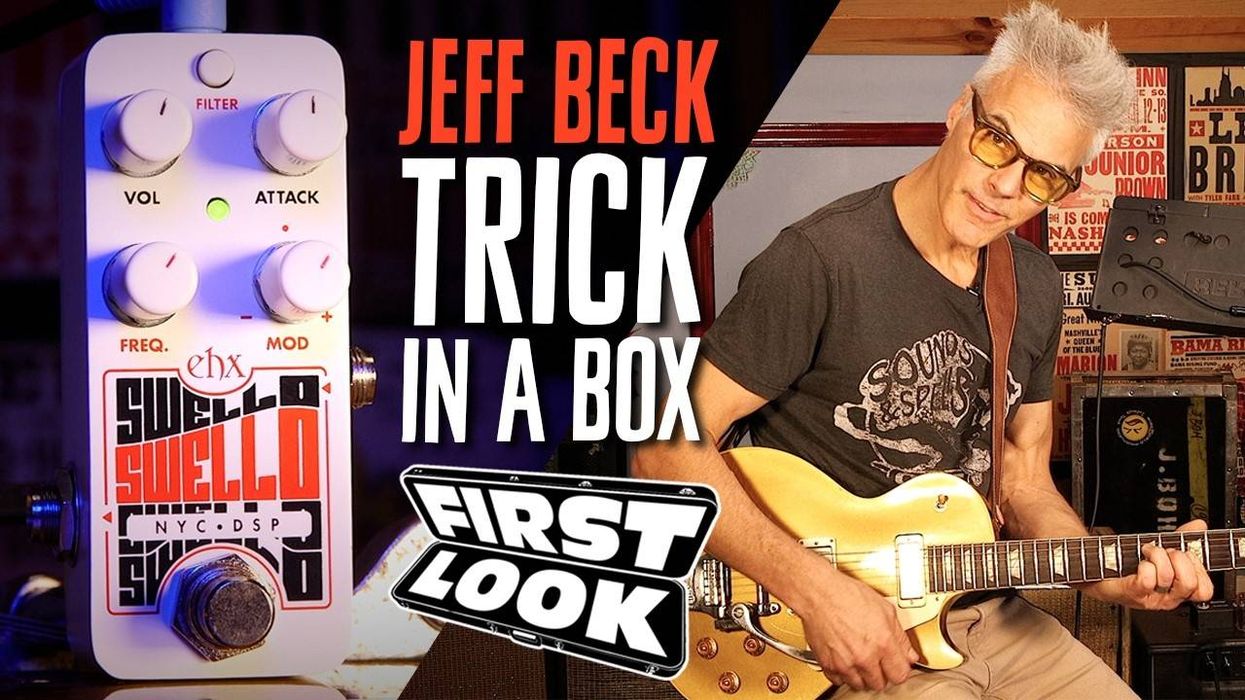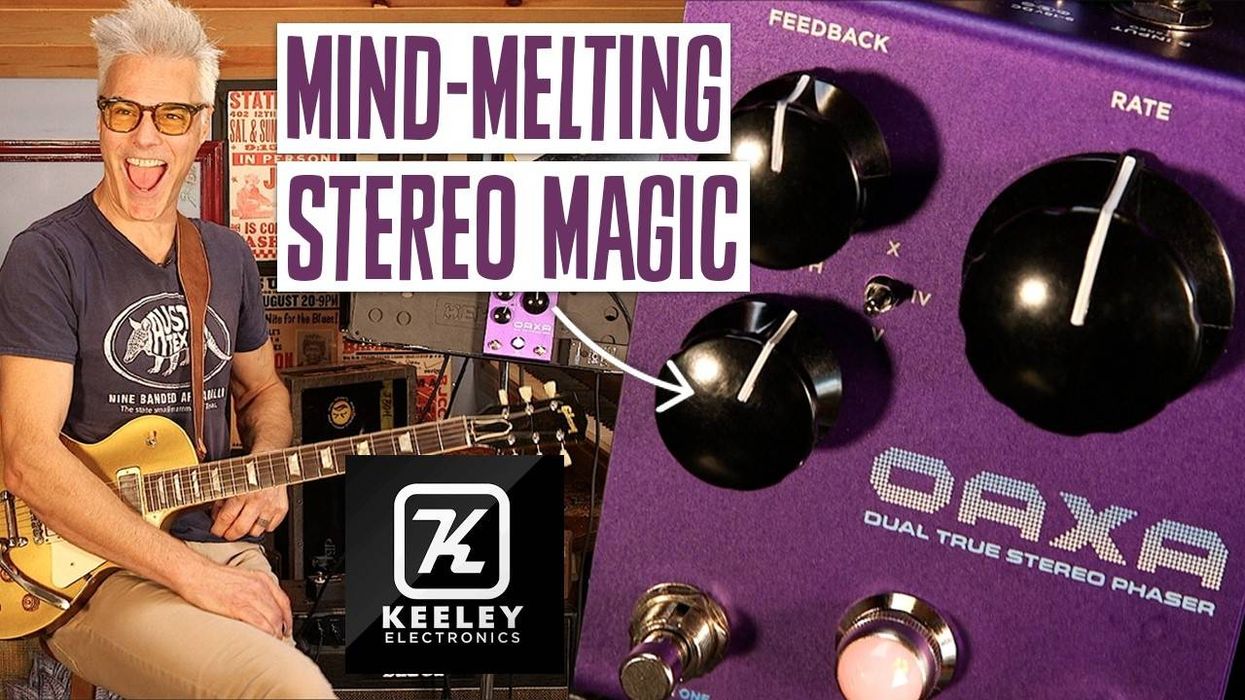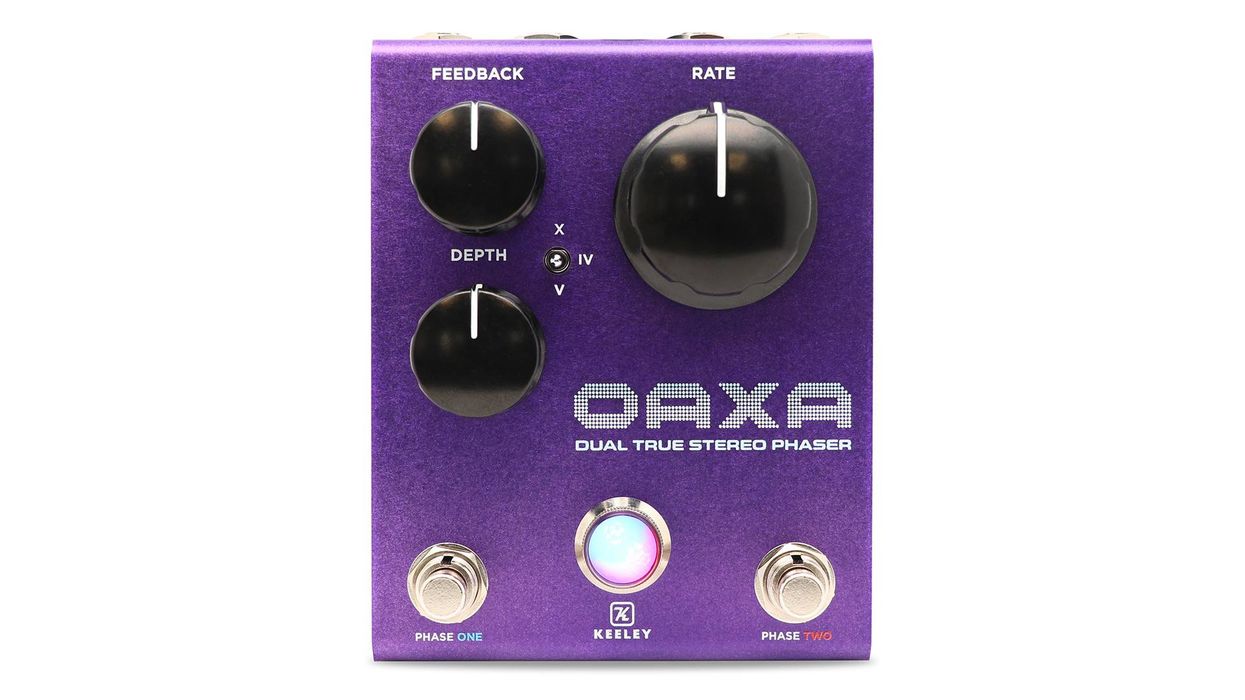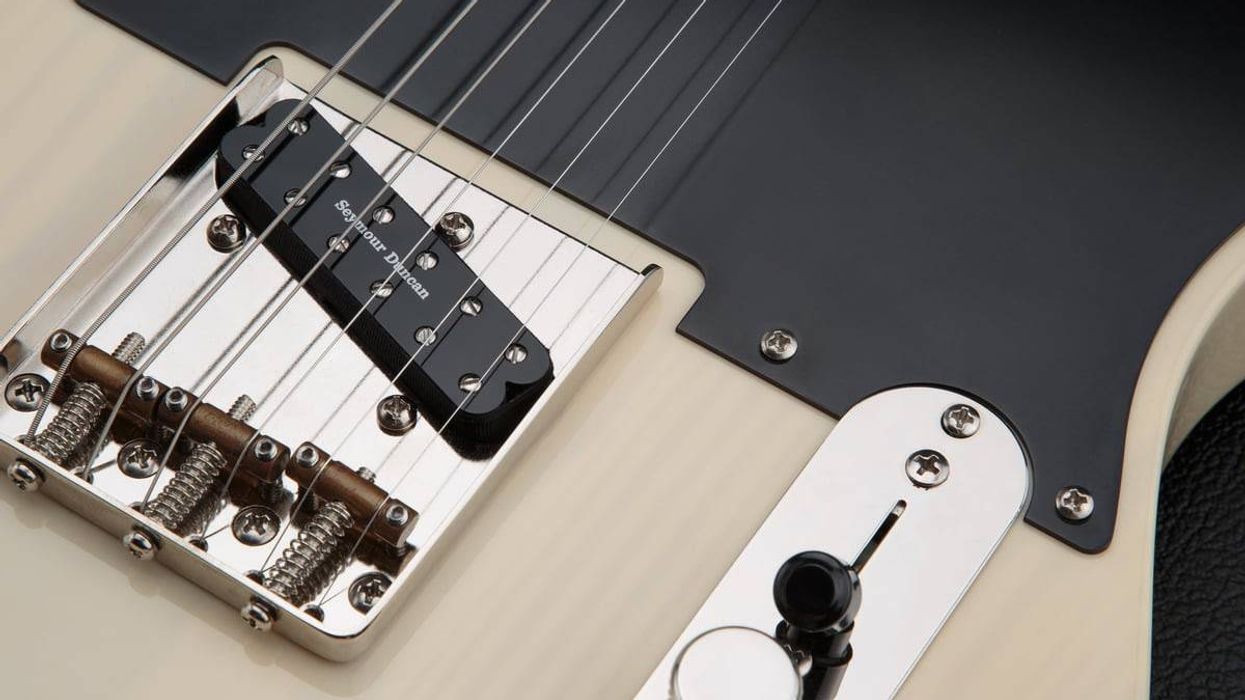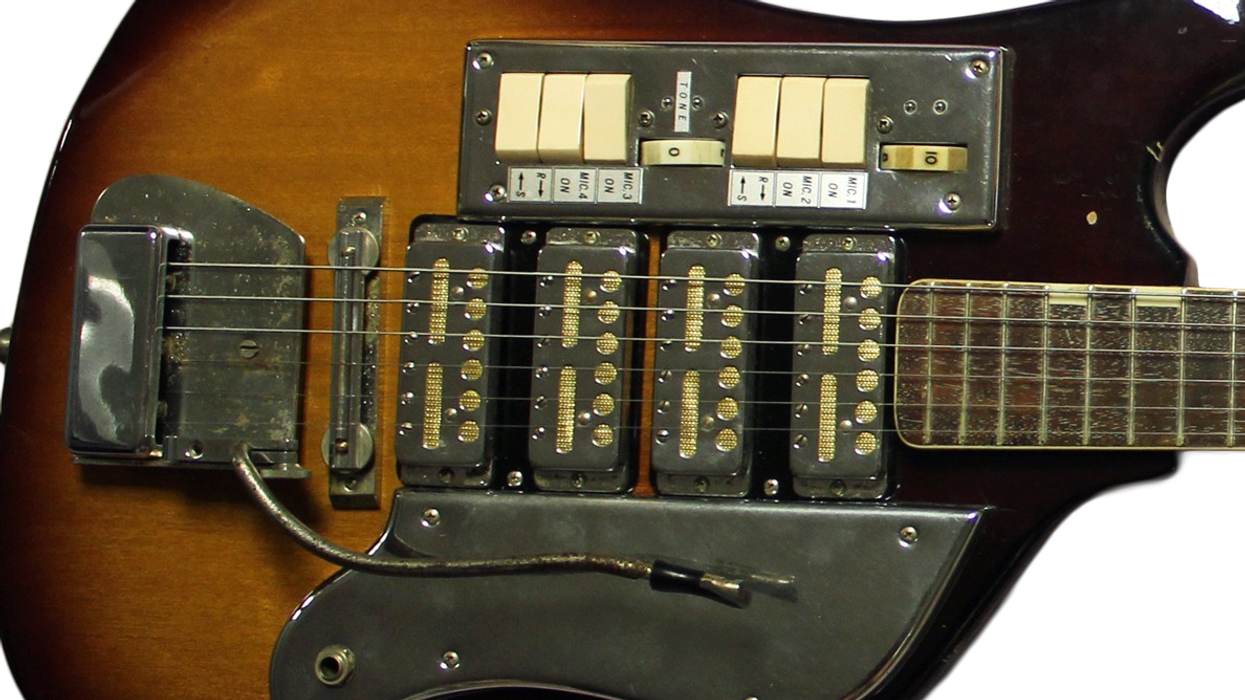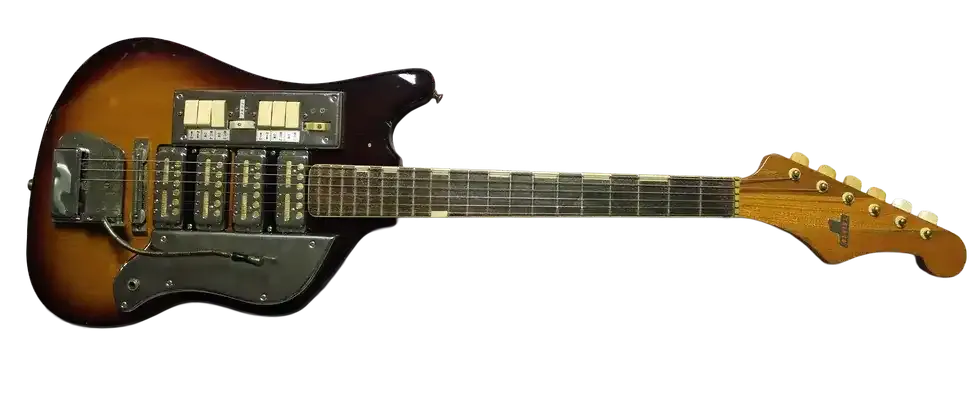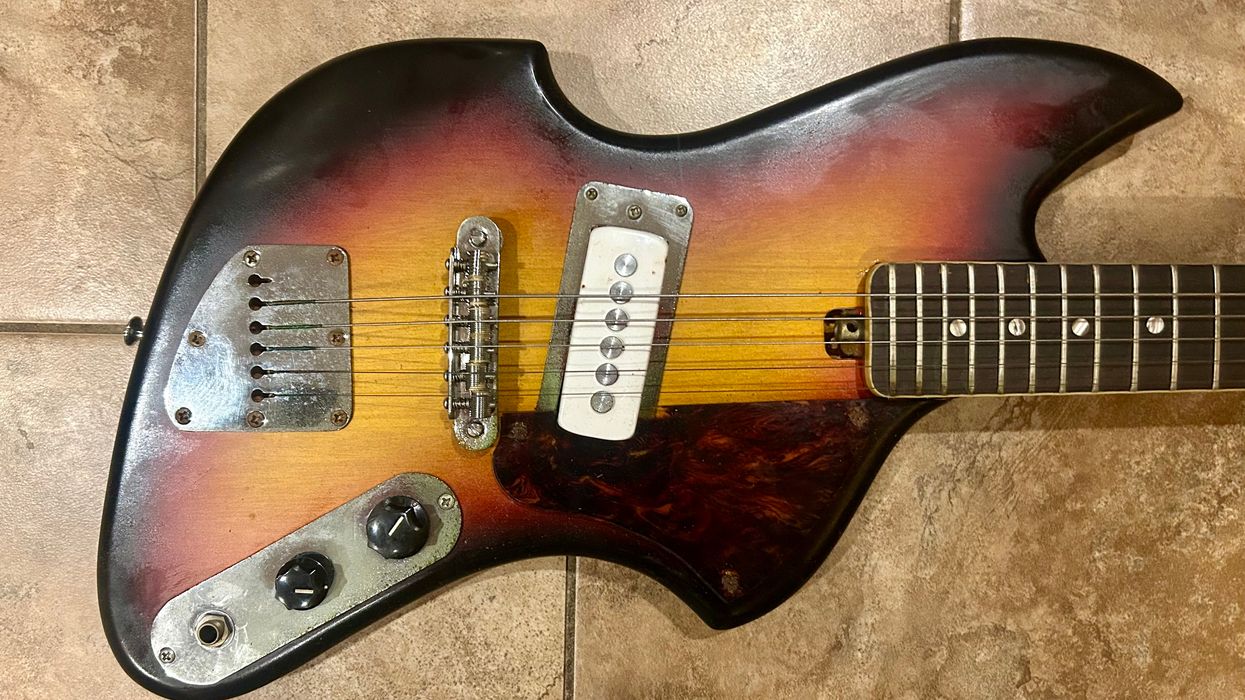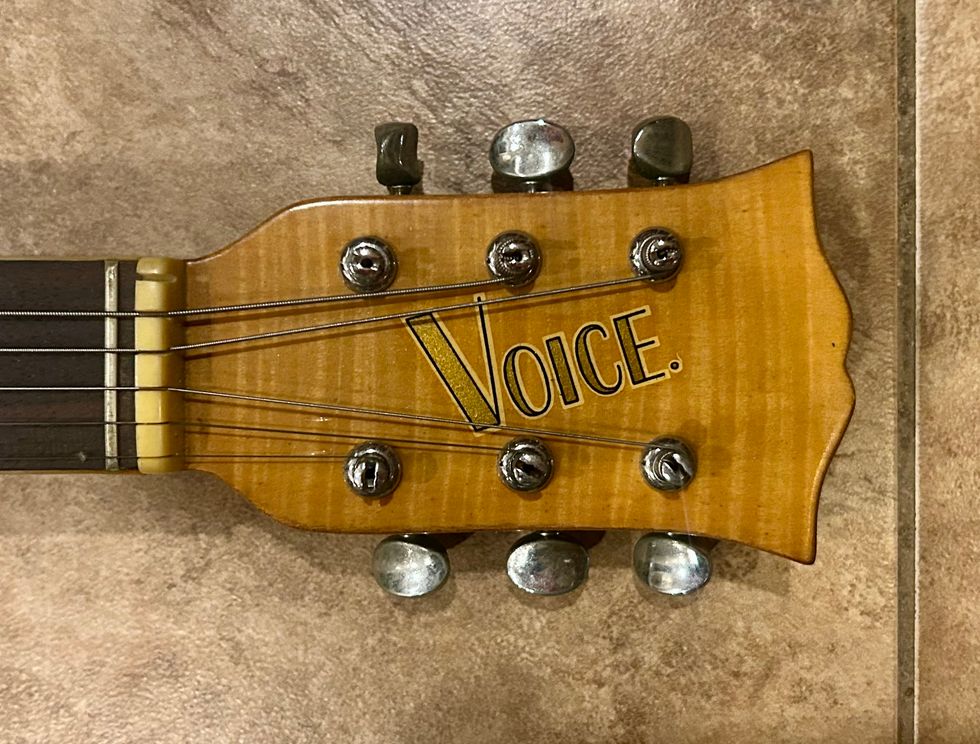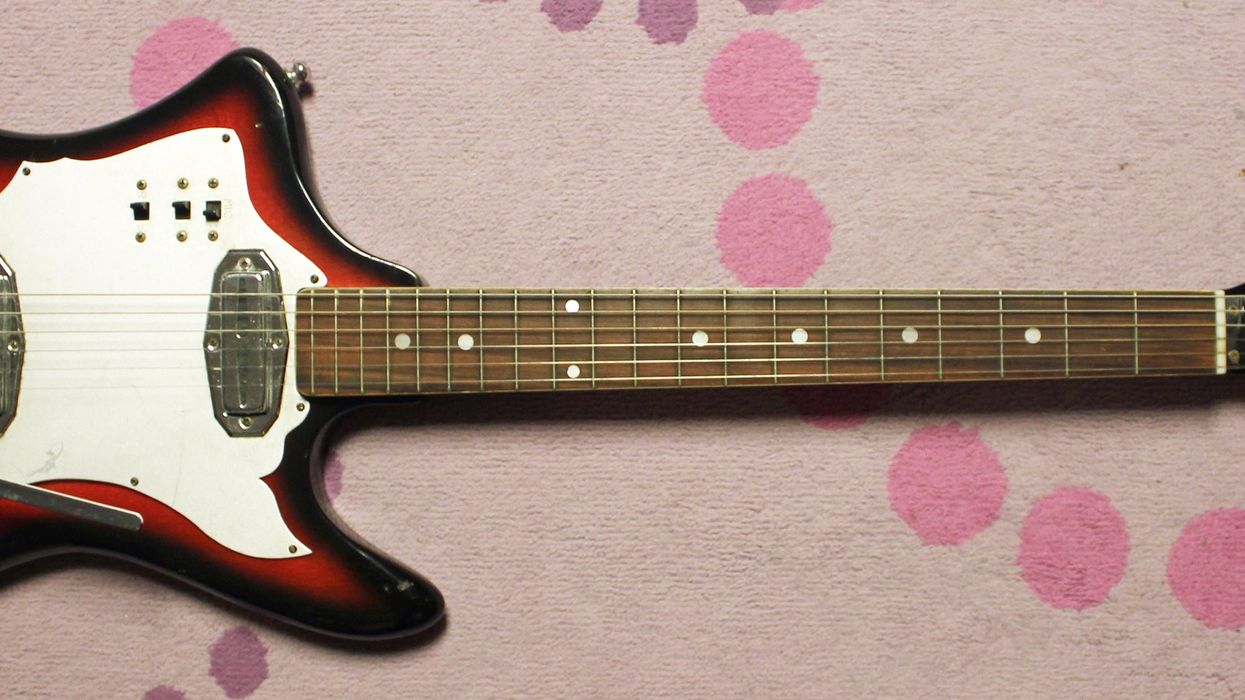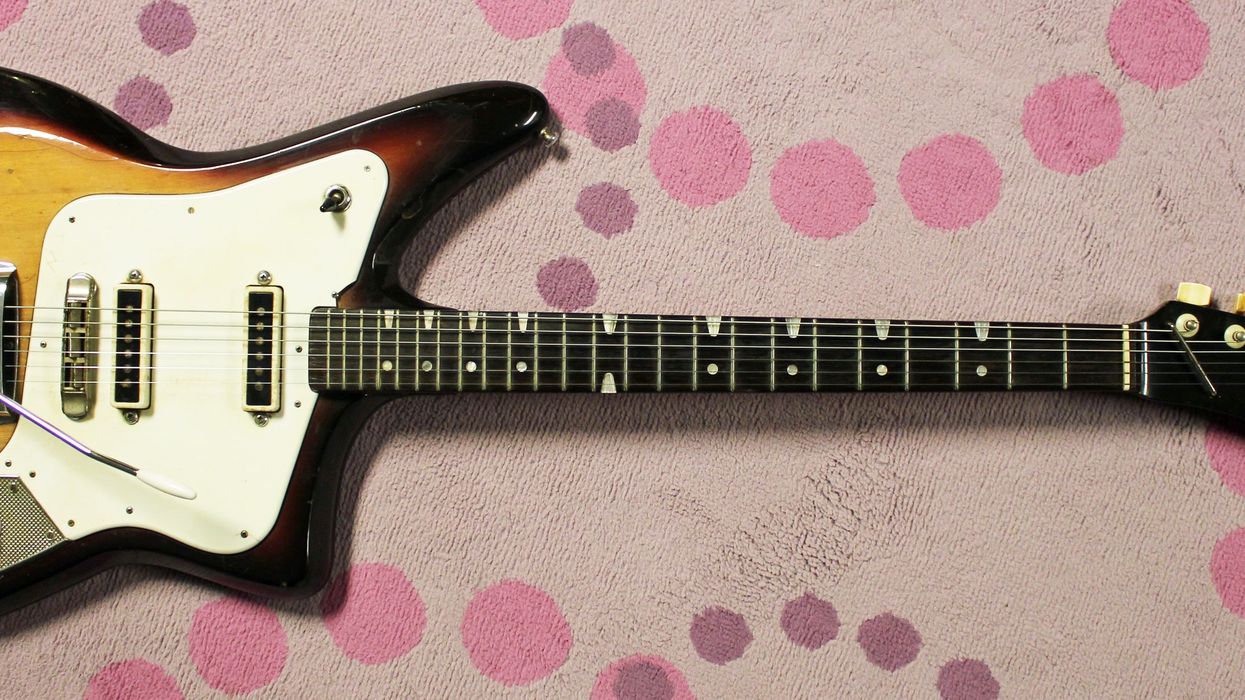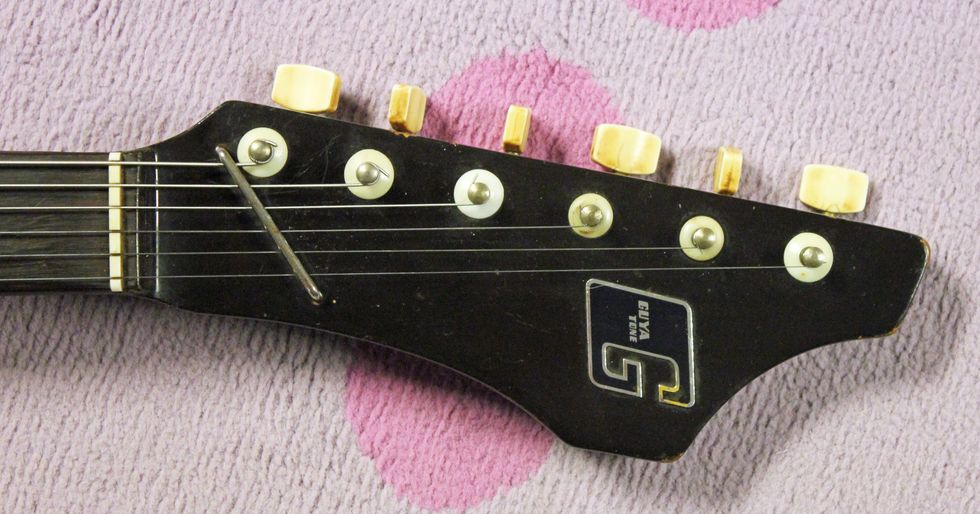I remember back when I was getting heavily involved in guitar research, I found so much satisfaction in learning about people from across the world. Seriously, it was so stimulating to find former guitar-factory employees. It wasn’t easy to do, but when the dominos fell, it was wonderful. So, follow along the path with me here for a moment.
My book publisher is a guitarist, and knew a Japanese pedal-steel player named Kiyoshi Kobayashi (nicknamed “Lion”) who knew some people involved in Teisco. Lion was a wonderful source of information with a terrific sense of style and food. I was planning to visit Japan, and he was helping me to gather some people there that I could interview. Lion always kept talking about this one guy, calling him the “master” and the “maestro.” Well, the “master” turned out to be a fellow named Yukichi Iwase, and, let me tell you, Iwase was one of the most interesting people I ever met.
It turned out that Iwase was one of the original employees of Teisco, and I interviewed him for about two hours. This guy knew everyone and everything, and his memory was as sharp as a tack. Iwase was known as an electronics wizard, and he’s just one of these people where repair and design are intuitive. He was the man when it came to amplifier repair, and there were several touring American acts that happened by his small shop.
“The guitars are really amazing works of art that have a wonderful sound, closely resembling a vintage Fender tone, but with a little more oomph.”
Around 1964, Iwase left Teisco and started his own company called Iwase Denshi, or Voice, and his products were often dubbed “Singing Electric.” He was primarily a one-man operation, so his production numbers were always on the low end, but if you can find one of his Voice guitars or amps, then jump on it!
Iwase’s guitar lineup included about four different models, which included this Voice Frontier Custom from around 1966. Iwase made every guitar, basically from scratch. He even made his own tuners, pickups, pickguards, tailpieces, and tremolo units. The guitars are really amazing works of art that have a wonderful sound, closely resembling a vintage Fender tone, but with a little more oomph. The pickups are alnico and are super quiet. The electronics are similar to the Fender Jazzmaster and include a rhythm circuit on its upper horn, and the offset design is well-balanced.
Iwase’s reputation was well-known in Japan, and many of his guitars were custom-ordered. I have three of his electrics, and they are all a bit different, but the quality is always high. The necks have a great vintage C-shape, with just a bit of fullness. All the Voice guitars I own have a Gibson scale and they all play great.
Iwase continued to build guitars and amps until around 1970, and he estimated that he only made around 300 electric guitars in total. His amps also show the same attention to detail, and he had a few different models that all sound incredible too.
Iwase signed one of my Voice guitars, and it’s one of my most prized possessions. The last time I was in Japan, I met with Iwase and Lion, and we had such a great time. Iwase was, and still is, incredibly witty and humorous, and I miss him a lot! When Covid brought the world to a halt, I worried about him, and I kept having these really vivid dreams about him. I kept messaging an ex-pat in Japan to check in on Iwase to make sure he was okay. So, today after I write this, I’m going to the liquor store to buy some sake and raise a glass for Iwase and his amazing skills.
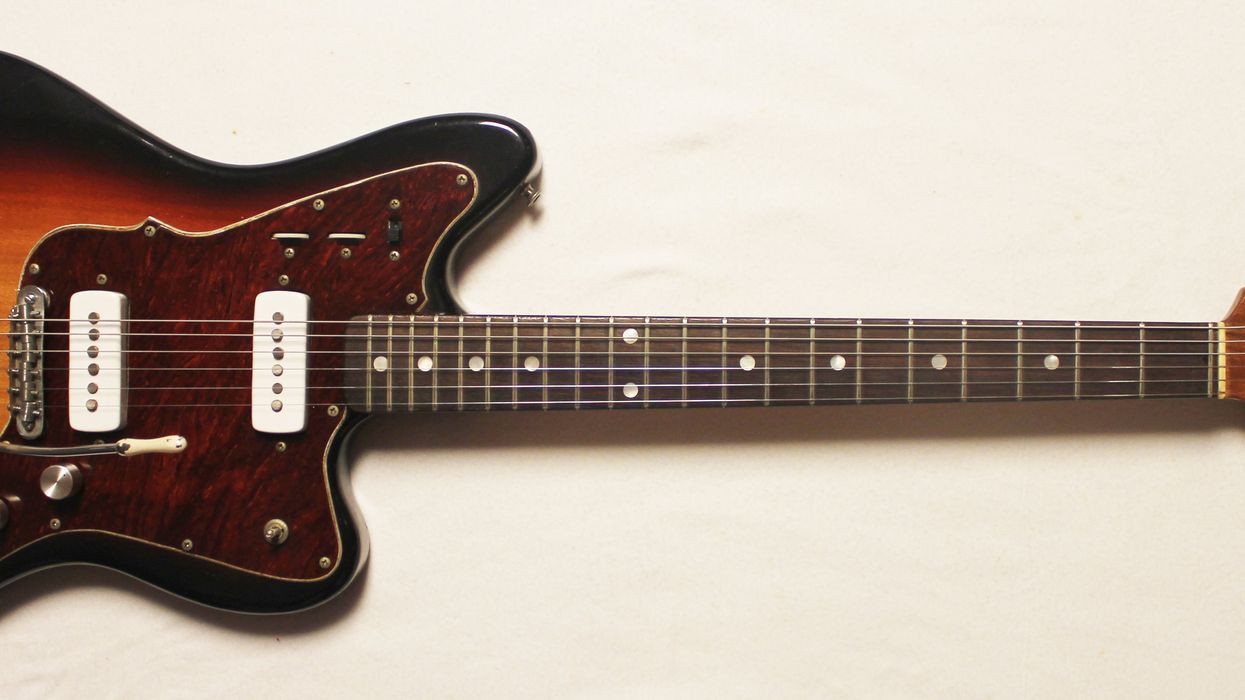

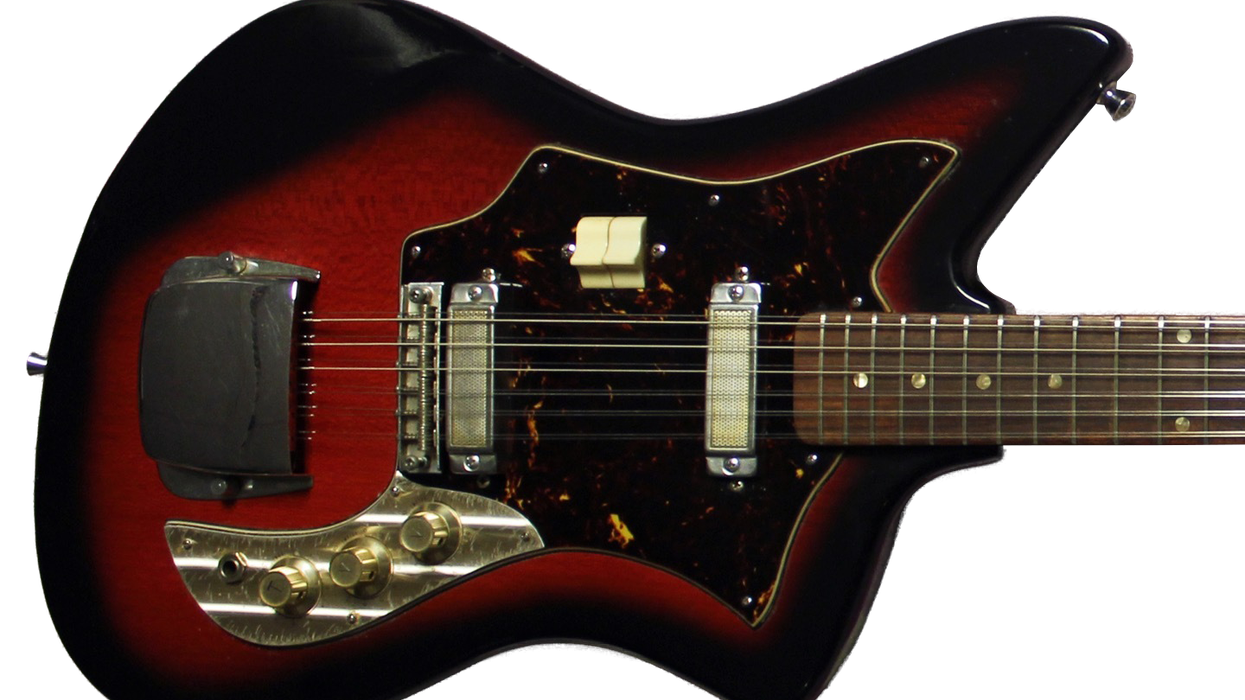
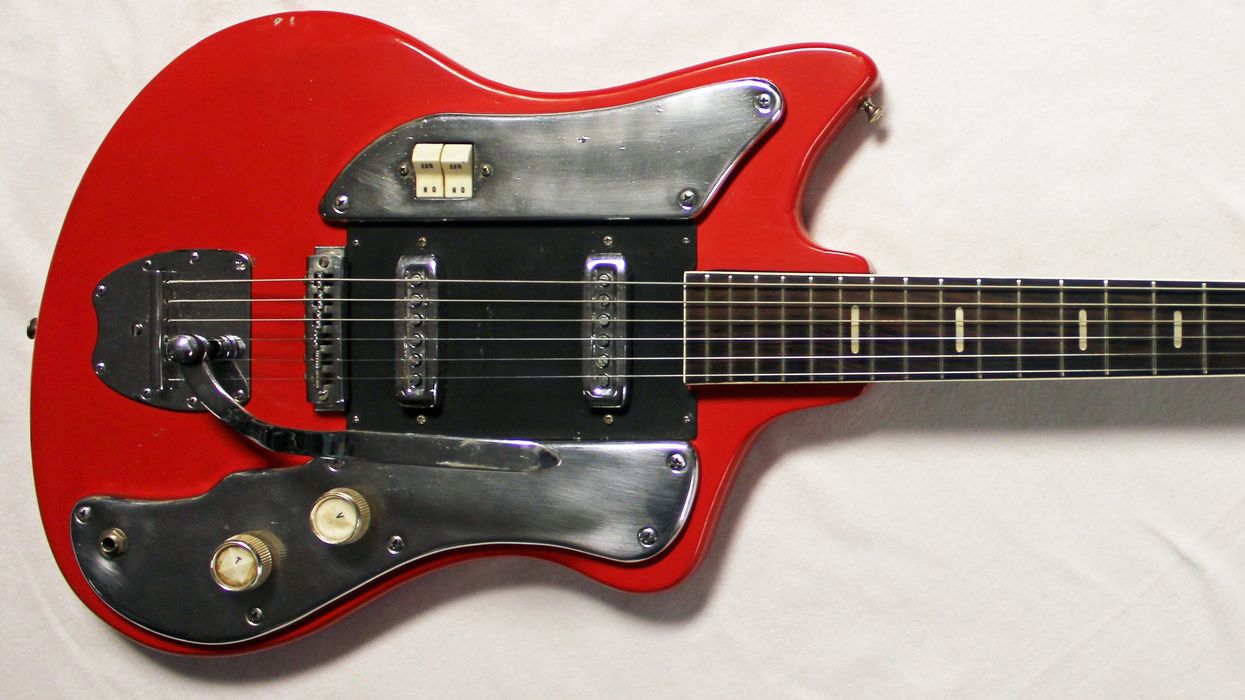
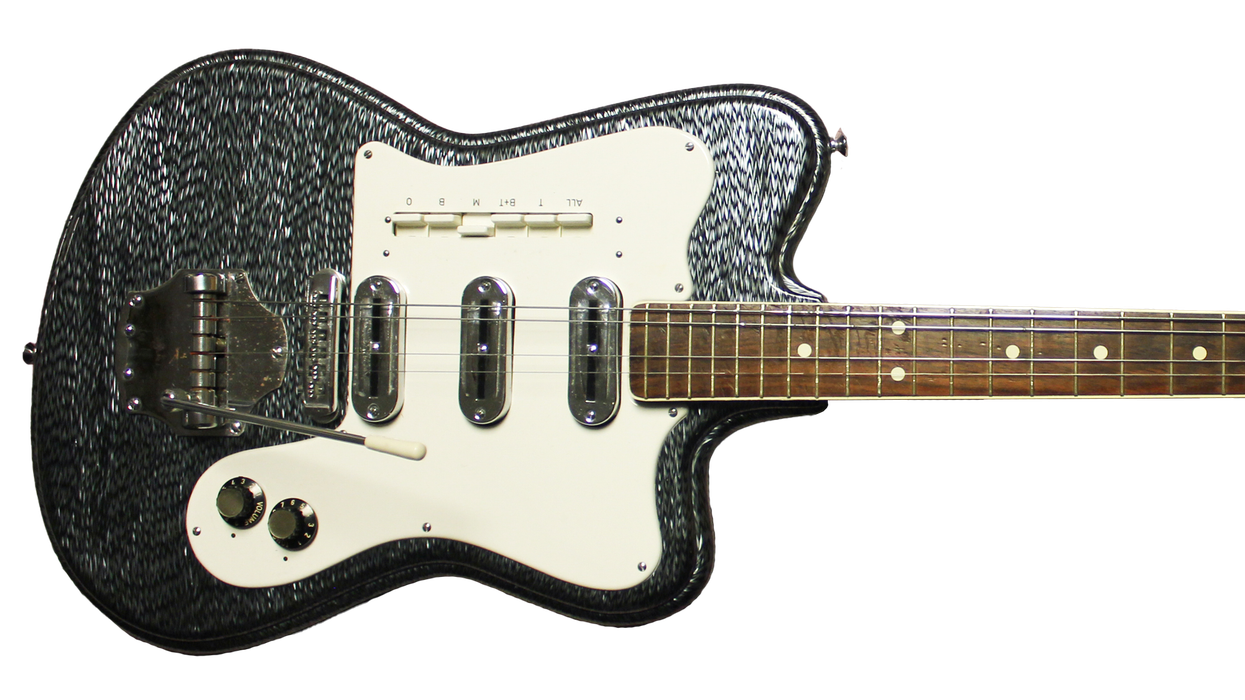
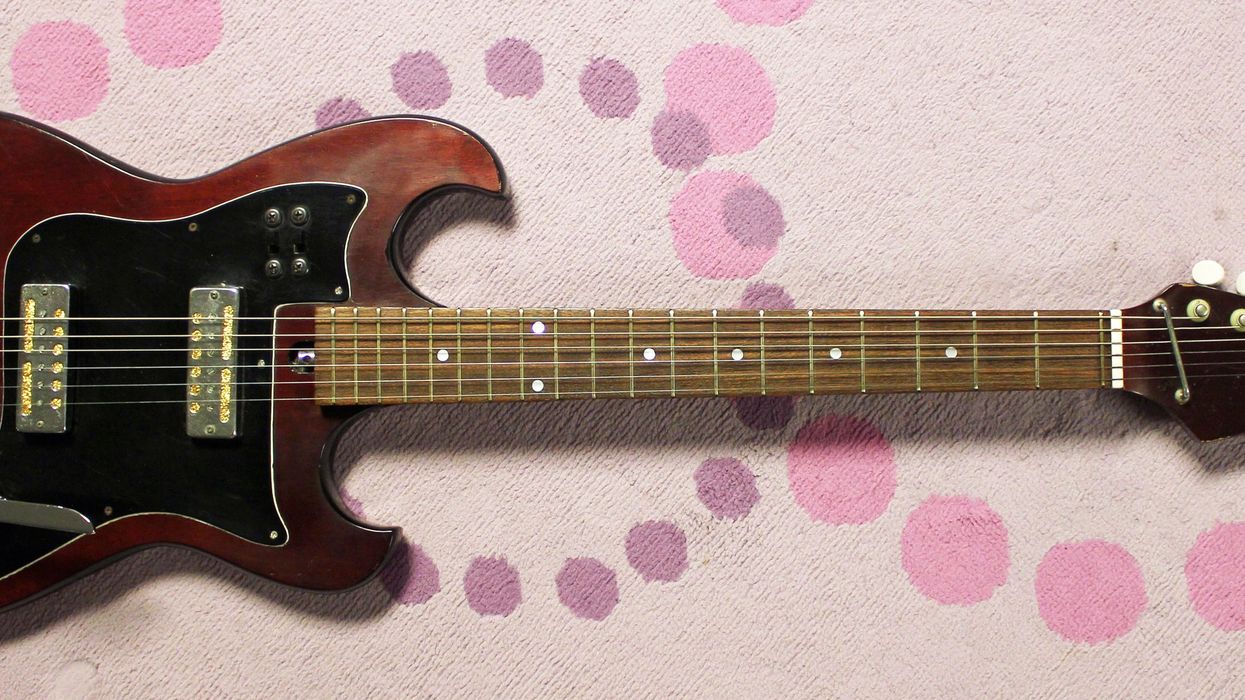
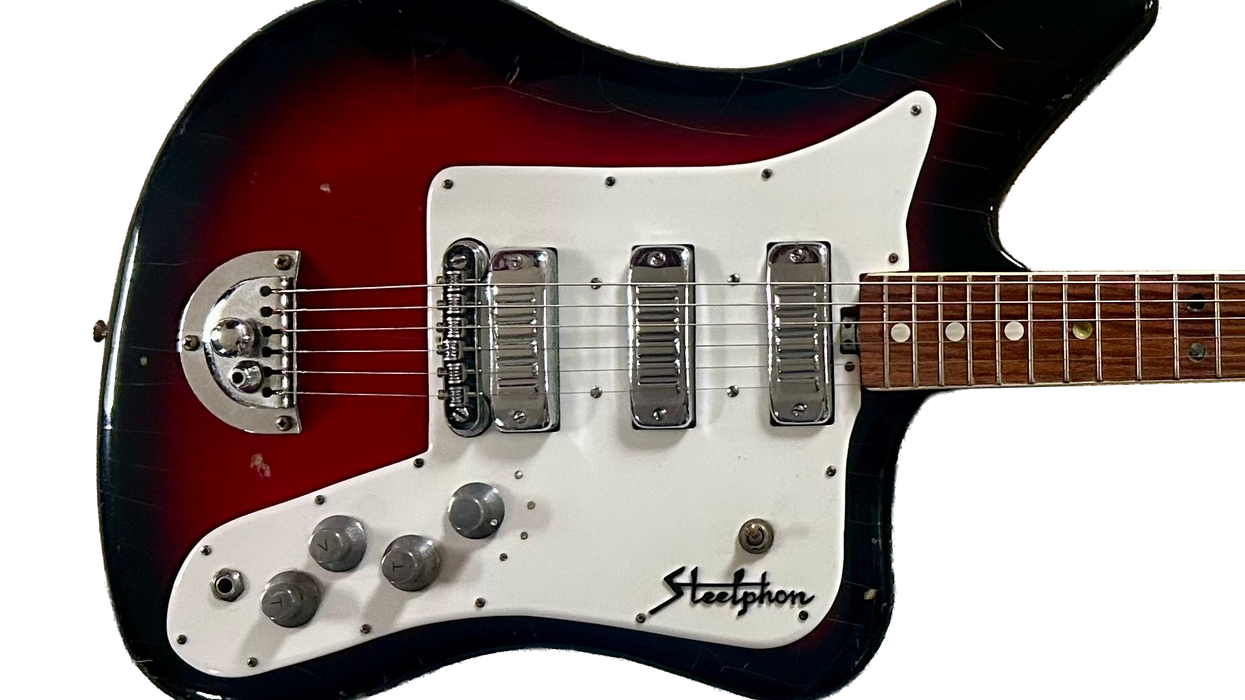
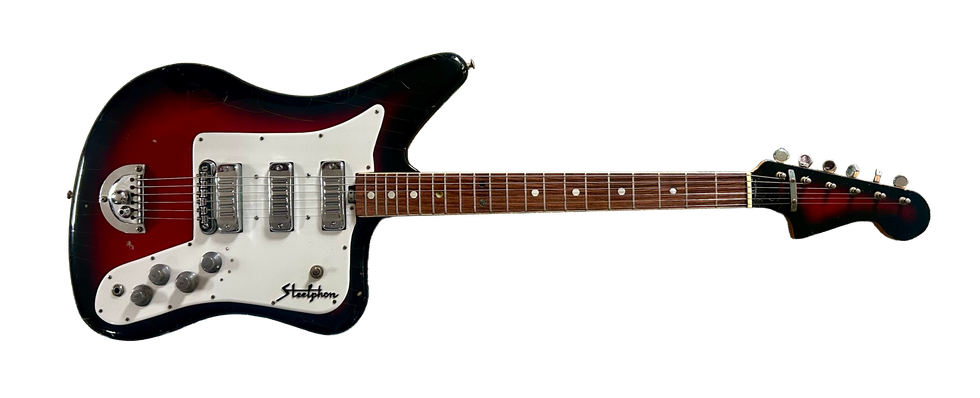 Then, in the dream, I “awoke” and realized I was back in my bedroom, and it was all just a dream. The kicker is that I was still dreaming, because that “paddle” guitar was suddenly in my hands—then I woke up for real! How about that misadventure?
Then, in the dream, I “awoke” and realized I was back in my bedroom, and it was all just a dream. The kicker is that I was still dreaming, because that “paddle” guitar was suddenly in my hands—then I woke up for real! How about that misadventure?